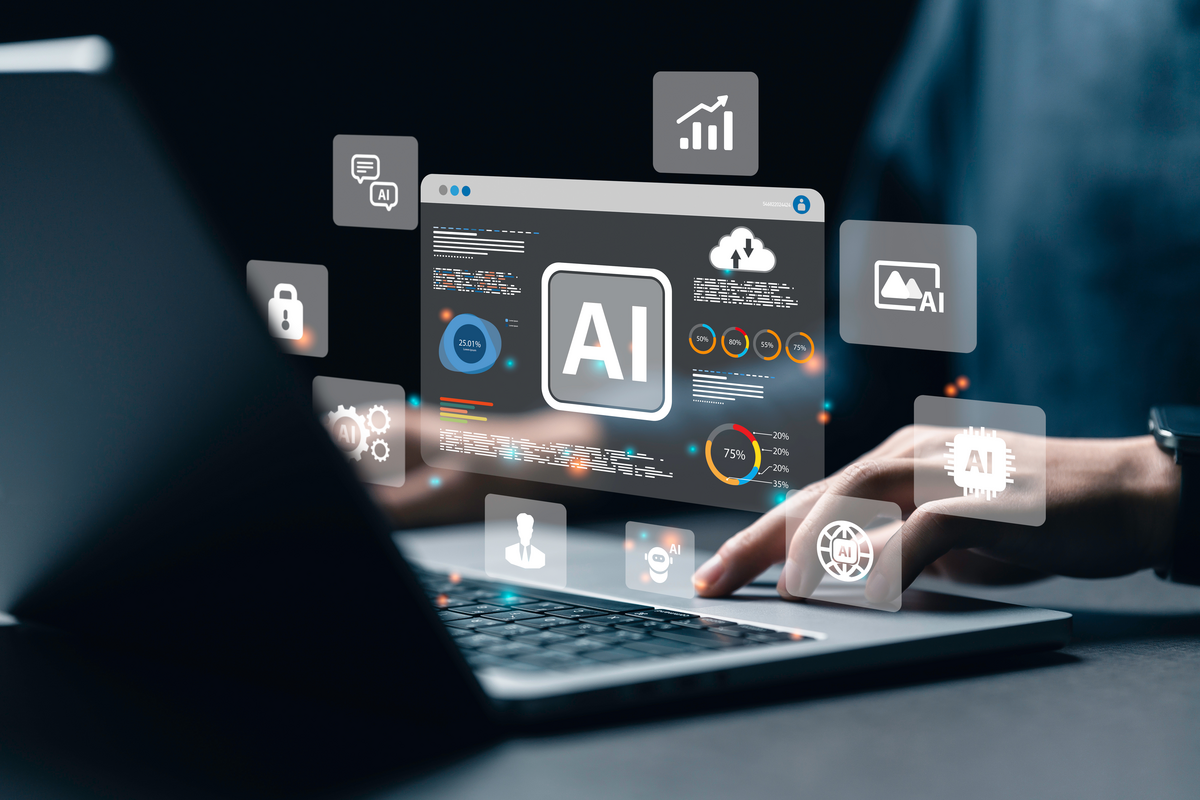As of this writing on June 6, Apple (AAPL 0.73%) is valued at an astonishing $3 trillion. It's not surprising that to get to this point, its shares have rocketed higher, to the tune of 14,830% just in the past two decades.
There is perhaps no company on the face of the planet that is more closely watched than Apple. As a result, investors probably feel that they generally have a thorough understanding of the tech giant. But there's more than meets the eye.
Think you know Apple? Here's one little-known fact you can't overlook.

Image source: Getty Images.
Apple's budding services segment
The world knows Apple as the purveyor of the most beautifully designed tech gadgets. These days, the iPhone, iPad, MacBook, Watch, and AirPods get all the attention. Before, it was the iPod that was the talk of the town.
Innovation has always been a core part of Apple's DNA, and this was delivered to users in physical form. According to CEO Tim Cook, there are 2.4 billion active Apple devices (as of January) around the globe, showcasing that the products truly are everywhere.
In recent years, though, there's another segment that investors need to pay closer attention to. I'm talking about the services division. In Q2 2025 (ended March 29), services brought in $26.6 billion of revenue, translating to 28% of the company's total. This fact might not be on the radar of a lot of investors.
That sales figure was up 11.3% year over year and 34.3% compared to Q2 2022. The growth rate is much better than what's being achieved in the more mature products segment. In fact, product revenue dropped 11.4% in the last three years. In the future, the share of sales coming from services is likely to expand, just as it has in the past.
There are a lot of services that Apple offers. Advertising, AppleCare, iCloud, App Store, Arcade, Fitness+, Music, News+, TV+, Card, and Pay are all included here. Apple has leveraged its broad distribution, literally sitting in the pockets of consumers worldwide, to layer on services. This segment reported an incredible 75.7% gross margin in Q2.
Besides driving faster growth and better profitability, services create a key competitive advantage for Apple, which is its powerful ecosystem. Users are essentially locked into the Apple's walled garden.

NASDAQ: AAPL
Key Data Points
How AI will impact Apple
Artificial intelligence (AI) is a strategic priority for companies these days. Apple Intelligence is Apple's version of this revolutionary technology. Newer devices have this capability built in, which helps users with writing, creating emojis, and summarizing text messages, among other features. However, an AI-powered Siri update has been pushed back to next year, causing some critics to question Apple's urgency.
Nonetheless, should Apple make more progress with AI, it could positively impact the financial picture. This could show up in the services division. If AI makes those apps much more useful, say with better recommendations that drive more sign-ups and discourage subscribers from cancelling, revenue and profits could get a boost. So, it's clear that services are becoming more important from a financial perspective, while also allowing Apple to lean more into AI.
However, the vast majority of revenue still comes from hardware, a fact that can't be ignored. And within that, Apple remains an iPhone business. This single product line represented roughly half of overall sales in the latest fiscal quarter. That can be hard to believe, given that the iPhone is nearly two decades old.
Apple's hope is that Apple Intelligence will spur sales of its devices, incentivizing consumers to want to update to the latest models to take advantage of the newest AI features. We're not seeing this happen just yet.
Investors that are interested in Apple stock must understand how the business is shifting to one in which products will be a less important contributor to financial success.





